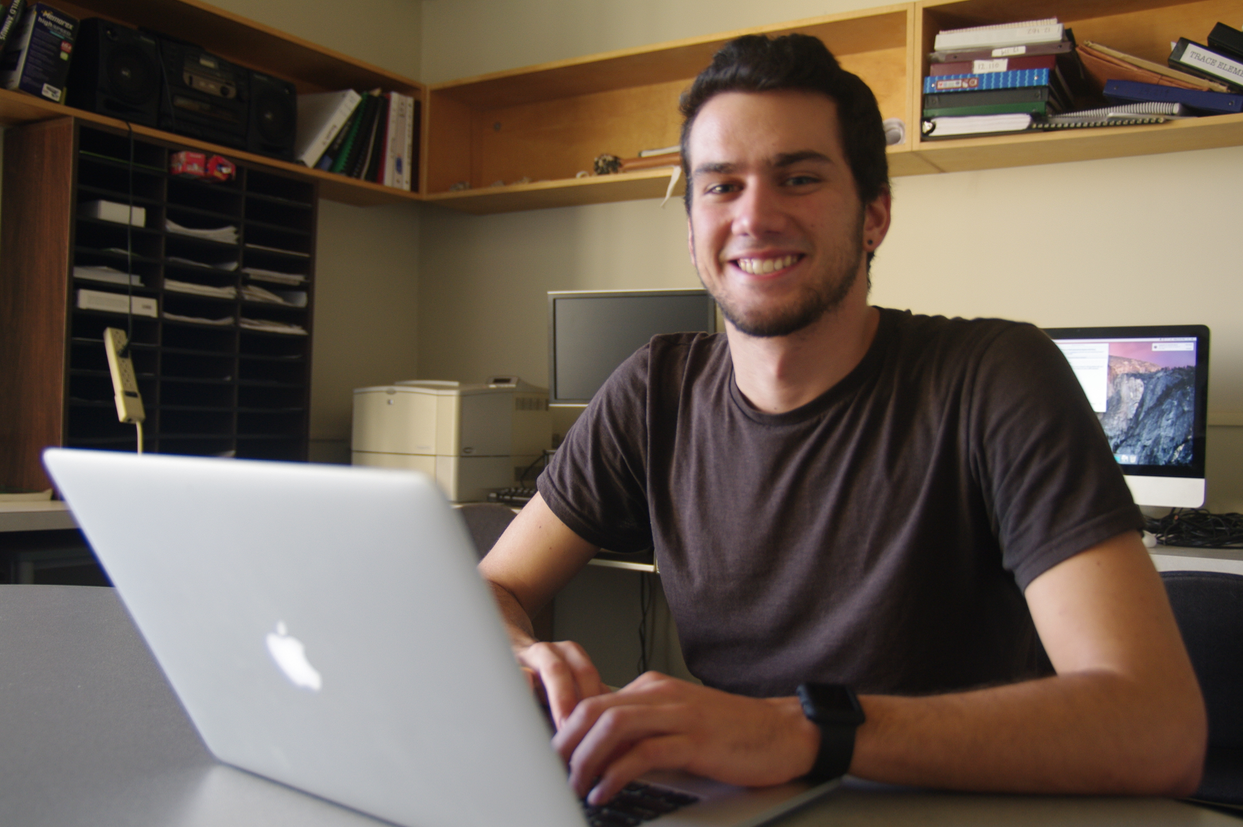PAOC Spotlights
Forecasting the Head of the Charles
Not the winners: The weather! For the third year in a row, Costa Christopoulos '17 provides local, fine-scale weather forecasting support for this beloved annual, international, two-day regatta on the Charles River.
MIT’s Weather and Climate Club aspires to provide students interested in day-to-day weather, as well as longer term issues of climate, an opportunity to meet like minded students and enrich their experience through involvement in some of the many activities in EAPS that focus on weather and climate. Club members provide MIT’s student newspaper The Tech with in-house weather forecasts, maintain the weather station on the roof of the Green Building, participate in the national collegiate weather forecasting competition WxChallenge, and since 2009, provide local, bespoke weather forecasting for the Head of the Charles Regatta.
For Costa Christopoulos ’17, a double major in Physics and EAPS, this year’s regatta marked his third year forecasting, and the first with any significant weather potentially impacting the event. "This year it was not easy! The weather was really challenging, ” said Senior Lecturer and Club Coordinator synoptic meteorologist Lodovica Illari.
“The event isn’t often cancelled due to inclement weather and it wasn’t again this year, but Head of the Charles 2016 was certainly the most challenging I have faced,” Costa recounts. “The first, and only time the race was cancelled (due to heavy rains and gusty winds) was in 1996. On two other occasions (1969 and 2004) weather cut short the event with the committee implementing an emergency reduced course.” While everything went as planned this year, there was anxiety behind the scenes. Costa says “We knew we would be looking at more challenging conditions than we had experienced for a number of years, but thankfully, as it turned out, the call never came to cancel or abbreviate the course.”
 “Regatta organizers are mostly concerned with heavy rain, strong winds, or lightning, all of which pose risks to rowers, organizers, and spectators. A key concern for the rowers is strong 'headwinds' that blow from the direction rowers race in. Overly strong winds can generate a choppy river surface, making rowing and steering difficult.”
“Regatta organizers are mostly concerned with heavy rain, strong winds, or lightning, all of which pose risks to rowers, organizers, and spectators. A key concern for the rowers is strong 'headwinds' that blow from the direction rowers race in. Overly strong winds can generate a choppy river surface, making rowing and steering difficult.”
While forecasts for The Tech, Costa’s customary forecasting gig, discuss general weather on a 1-5 day time frame, forecasting for the Regatta additionally involves providing event organizers with frequent updates about specific short-term, local weather conditions.
At a pre-race briefing to the organizing committee and Cambridge Boat Club volunteers on the Tuesday before race weekend, Costa was called upon to provide forecasts of general weather conditions for the weekend ahead, highlighting potential for threatening weather like strong wind and thunderstorms.
“On the two race days themselves, the most frequent updates detail wind speed/direction as well as precipitation. For 1 and 2 day forecasts, I begin with output from high-resolution weather prediction models and apply biases to come up with a forecast range. On the day of the event, forecasts are adjusted following each weather model update by incorporating observed weather from surface observations, radar, and satellite. The committee is then updated via email. If rain is present, radar is periodically monitored for the development of storms that may produce lightning,” Costa explains. “This year, the main story was gusty westerly winds each afternoon. The race starts at the Boston University Boathouse and finishes near Herter Park, a course totaling three miles from east to west. As forecast, the headwinds this weekend carried wind gusts over 30 mph, definitely a cause for concern to some committee members. Sustained winds were 14-18 mph.”
Costa, who grew up in Alabama, says his interest in meteorology was sparked at age 10 as he followed the development of the tropical system that ultimately grew into Hurricane Katrina leading to so much destruction along the Gulf Coast. Familiar with the frequent and destructive consequences of severe Alabaman thunderstorms which often carry tornadoes, hail, and damaging winds, at MIT, Costa’s interests have broadened as he has become increasingly interested in the impact of climate change on such high-impact weather events around the globe.
For more information about MIT's Weather and Climate Club contact Lodvica Illari, illari@mit.edu. Read this story on EAPS.
Story Image credit: Shutterstock